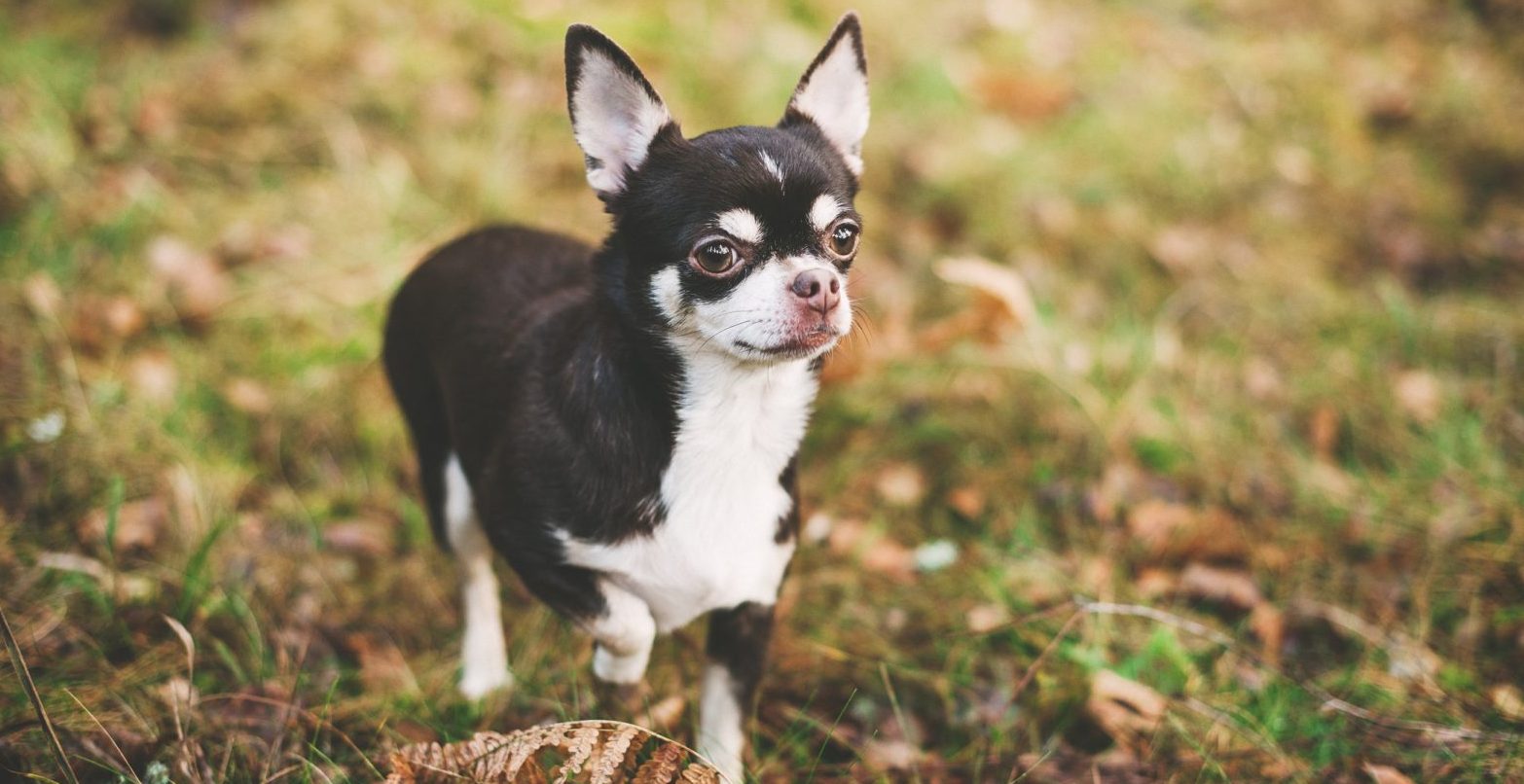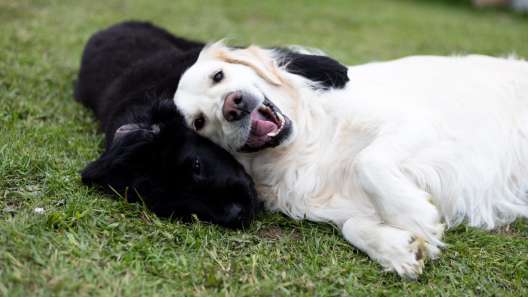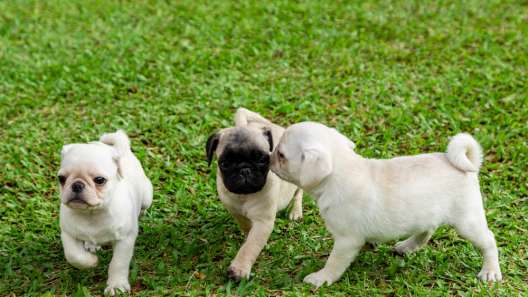-
Activity Level:
low
-
Shedding Level:
moderate
-
Grooming Level:
moderate
-
Trainability:
high
-
Good for Novice Owners:
high
-
Adaptability:
moderate
-
Kid/Pet Friendly:
often
-
Prey Drive:
low
-
Watchdog:
very alert
- Average Size: Small
- Average Lifespan: 14-16 years
- Registered?: aca, akc
Chihuahua Dog Breed Information
Overview
Temperament
Adaptability
Health
Owner Experience
Grooming
Activity Level
Size
Life Span
Did You Know?
The Chihuahua is a small dog breed and is a national symbol of Mexico. One of the facts about Chihuahuas is that they are one of the oldest dog breeds in the Americas. Chihuahua ancestors appear in ancient paintings in Mexico and their lineage can be traced back to pre-Columbian ancient kingdoms.
The Toltecs ruled Mexico over a thousand years ago and had the Techichi, which is considered a larger and heavier ancestor of the modern Chihuahua. When the Aztecs conquered the Toltecs, they refined the Techichi into a smaller and lighter dog. These dogs became so valued within the Aztec culture that they became known as one of Montezuma’s fabled treasures after the Spanish conquistadors toppled the civilization in the 1500s.
North Americans started to take an interest in the breed in the mid-1800s and found several in the State of Chihuahua, which is how the modern breed got its name. The AKC recognized the Chihuahua as a member of the Toy Group in 1904. The first recorded Chihuahua registered by the AKC was in 1908. His name was Beppie.
Chihuahuas, or Chis, tend to be very alert and playful. Often referred to as a “tiny dog with a huge personality”, they tend to have a charming, graceful, and sassy personality. Individual Chis can be bold or more on the shy or reserved side.
Overall, well-socialized and well-trained Chihuahuas are one of the most affectionate dog breeds. They also tend to get along well with children and other pets. But, due to their tiny size, especially as puppies, they tend to be a better fit for older children who can be gentle with them.
Socialization early and often ensures they are confident dogs, regardless of whether they tend to be bolder or shyer. Although they are open and affectionate with their families, even well-socialized Chis tend to be reserved with strangers. They are likely to warm up once introduced, but may not be willing to leave the company of their favorite human at first.
However, a poorly socialized and poorly trained Chihuahua can develop “small dog syndrome,” which will cause them to be potentially aggressive towards other people or animals and may cause them to bite or nip when nervous. Poor socialization is one of the causes of aggression in dogs and it’s important to properly socialize a Chi to avoid poor behavior.
Chihuahuas are moderately adaptable dogs. These little dogs can adjust to almost any lifestyle as long as they get plenty of attention. However, as one of the smallest dog breeds, they are not a good fit for roughhousing with young children who may still be working on motor coordination and learning to master motor control.
Although they do well in apartments or in larger homes, they do not adapt well to all weather. They handle heat relatively well for a dog, but are brachycephalic, so can be prone to overheating. Chihuahuas are also extremely sensitive to the cold, so special care must be taken when temperatures start to drop. This also usually makes the Chihuahua one of the dog breeds that hate winter.
Bundling up with the right mix of winter dog products and keeping walks shorter can help them handle trips outside during the winter. These little dogs also bond closely with their families and thrive on being near them, so they do not like to be left alone for long periods of time.
Potential health concerns to be aware of in Chihuahuas can include heart problems, like mitral valve disease and patent ductus arteriosus, patellar luxation, idiopathic epilepsy, and eye disease. Good breeding practices and healthy parents make a big difference in the health of Chihuahua puppies.
Reputable breeders will screen their dogs to make sure they are not passing preventable issues to puppies. Make sure you ask about the health and genetic history of both parents and about any health tests or clearances that have been done. The Chihuahua Club of America, Inc. recommends a cardiac exam, patella evaluation, and ophthalmologist evaluation at a minimum.
Chis are alert little dogs that are also highly intelligent. Although they can be eager to please, they also can have a stubborn streak where they will try to get their way. These dogs can be a good fit for owners of all experience levels, but puppy training classes are recommended for first-time owners.
They do tend to be relatively easy to train and they respond well to training with positive rewards, but that also means that it’s easy to train them into undesirable behaviors. It’s important to keep training consistent for any dog and especially for these little dogs.
You never want to allow or encourage your Chihuahua to do anything as a puppy that you do not want them to do as an adult. Chis can also be prone to barking a lot, so it’s generally a good idea to train your dog to stop barking early on to keep it from becoming a nuisance.
The Chihuahua either has a short, soft coat or a long coat that is fine and glossy. Their coats come in many patterns and colors. A short, smooth-coated Chihuahua needs only a weekly brushing and an occasional bath to maintain a healthy coat. A long-haired Chihuahua should be brushed daily to remove tangles and prevent mats and groomed every 6-8 weeks to maintain a healthy coat.
In addition to coat care, you will also need to take care of your Chihuahua’s nails, ears, and teeth. Once or twice monthly nail trims are usually enough to keep nails from growing too long. Checking ears weekly and carefully cleaning them as needed can help prevent ear infections.
As a small dog breed, Chihuahuas are more prone to developing gum disease and other dental diseases. Brushing your dog’s teeth daily is recommended. This, along with cleanings at the vet as needed, helps prevent tartar buildup and helps prevent painful dental diseases later in life.
Chihuahuas are playful and energetic dogs. Although they may have bursts of high energy when they play, they are also tiny dogs that tend to wear out quickly. Because of this, they sit in a low to moderate activity range. Daily walks plus some playtime are usually enough for these little dogs.
They love to run and play, but you do need to be wary of overexertion. If your Chihuahua is panting heavily or having trouble keeping up with you, it’s time to head home, and you might need to carry them there. Being aware of the weather, taking breaks, and playing in short bursts are all safe ways to exercise brachycephalic dogs.
Fully-grown Chihuahuas usually stand 5-8 inches tall and weigh up to 6 pounds on average.
Chihuahuas generally live for 14-16 years on average.
El Paso, Texas has a Minor League baseball team called the Chihuahuas. Chis were also the stars of the show in dog movies like the 2008 Disney film Beverly Hills Chihuahua. This dog breed has also held major supporting roles as iconic “purse dogs” in Legally Blond and Sex and the City.








